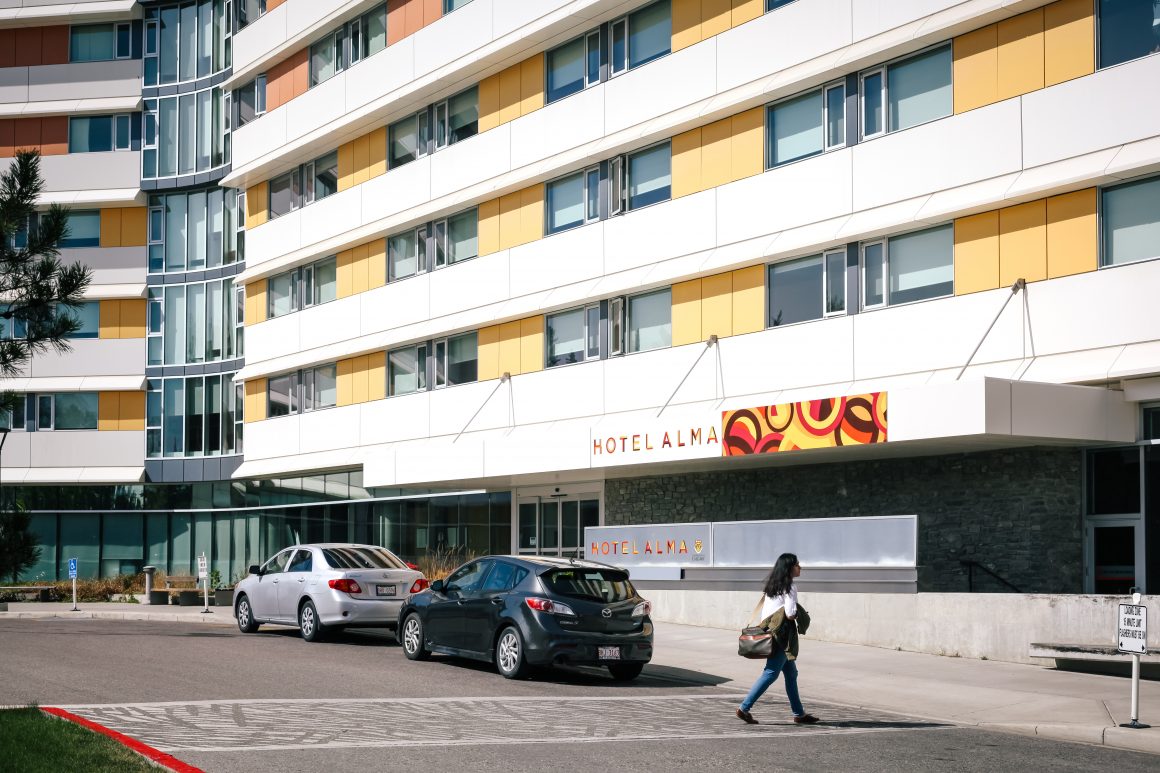
Demolitions, fee changes on the docket at Dec. 14 BOG meeting
By Matty Hume and Jason Herring, December 18 2018 —
Living in residence next year will be more expensive, but fees for ancillary services like parking and the meal plan will stay the same.
Those were among the results of a series of motions pertaining to fees approved by the University of Calgary Board of Governors (BOG) at their Dec. 14 meeting.
Residence costs will increase by 2.5 per cent for the 2019–20 academic year, equivalent to a rent hike of $19–26 per month for single-occupancy units. The increases are expected to generate about $400,000 in additional revenue for the U of C. Excluded from the hike are the Varsity Courts family housing units.
The complete Residence Strategy reported at the Dec. 14 meeting included a wealth of key components in addition to the cost increases. Namely, the Residence Strategy Update recommended two significant actions to form a foundation for ongoing changes to residence on campus: the demolition of the Glacier and Olympus halls and the conversion of Hotel Alma to a residence building.
According to the report, Glacier and Olympus, which were built in 1988, would require a $9-million capital investment over the next three to four years to remain viable. The strategy recommends that the two buildings, which have a combined 226 apartment-style beds, be demolished in the summer of 2020.
The report highlights that maintaining residence capacity in conjunction with the Glacier and Olympus demolitions as a primary factor for the conversion of Hotel Alma to a residence space with 223 suite-style beds. The report also mentions that “analysis shows operating Alma as a hotel or residence will provide the same financial performance, an annual loss of approximately $400,000.”
Further, the Residence Strategy Update cites external competition with the University District developments as a factor for Hotel Alma’s conversion. According to the report, University District has approved the construction of a 156-room hotel scheduled to open its doors in fall 2020. Currently, Hotel Alma has a 58-per-cent occupancy rate.
The incoming external hotel is not the only source of competition considered within the Residence Strategy Update. The report notes that the university is at a “competitive disadvantage” against external housing, largely due to incentives like free internet and referral discounts. Within two kilometres of campus, 2,003 units are already approved, being constructed or under consideration for approval by the City of Calgary.
Other financial considerations in the Residence Strategy Update include a recommendation to increase the rate of standard double rooms in Kananaskis and Rundle by $1,000 annually. The report justifies the recommendation by highlighting that the fee for the double units “is very low compared to the single.”
The BOG voted not to increase the cost of parking on campus, with accompanying documentation noting rate increases in 2018–19 as a reason for stagnation. However, new rules mean that those living in the Varsity Courts units will now have to pay monthly fees to park their car at their residence. Previously, parking charges applied to all other residences units. The new fee will be phased in for Varsity Courts residents, who will only pay a third of the full monthly parking rate in 2019–20.
Also staying stagnant is the cost of purchasing the residence meal plan, which is mandatory for all first-year students living in residence. However, the amount of money students receive in “Food Funds” — which can be used to purchase food from outside the Dining Centre — will decrease from $800 to $600 in 2019–20.
The U of C recently converted their meal plan to a buffet-style, ‘all-you-care-to-eat’ configuration run by Aramark, an American food services company. Aramark has recently come under fire in the United States amid a series of food safety and labour issues, particularly involving Aramark’s contracts with over 500 prisons. In early December, New York University students occupied their school’s library lobby to demand the university end its partnership with the company.
Also approved at the BOG meeting were tuition rates for the 2019–20 academic year, which will remain identical to this year’s tuition in accordance with the province’s ongoing tuition freeze.
However, the school opted to increase tuition for one program exempt from the tuition freeze — the executive master of business administration (eMBA) program. The board voted to raise tuition for this program to $75,000 for the two-year program for 2019–20, an 8.7-per-cent increase from the previous year.
During the meeting, U of C vice-president operations and finance Linda Dalgetty explained that the increase was meant to compete with the eMBA program at Queen’s University, which will have a $102,000 two-year tuition next year. She said that the higher price can be perceived as an indication of higher value and argued that the U of C needs to raise their price to compete.
Though the university could have increased the program’s tuition even higher, Dalgetty said the school didn’t feel right about further elevating the fees at this time.
“We didn’t want to be too gouge-y,” she said.
